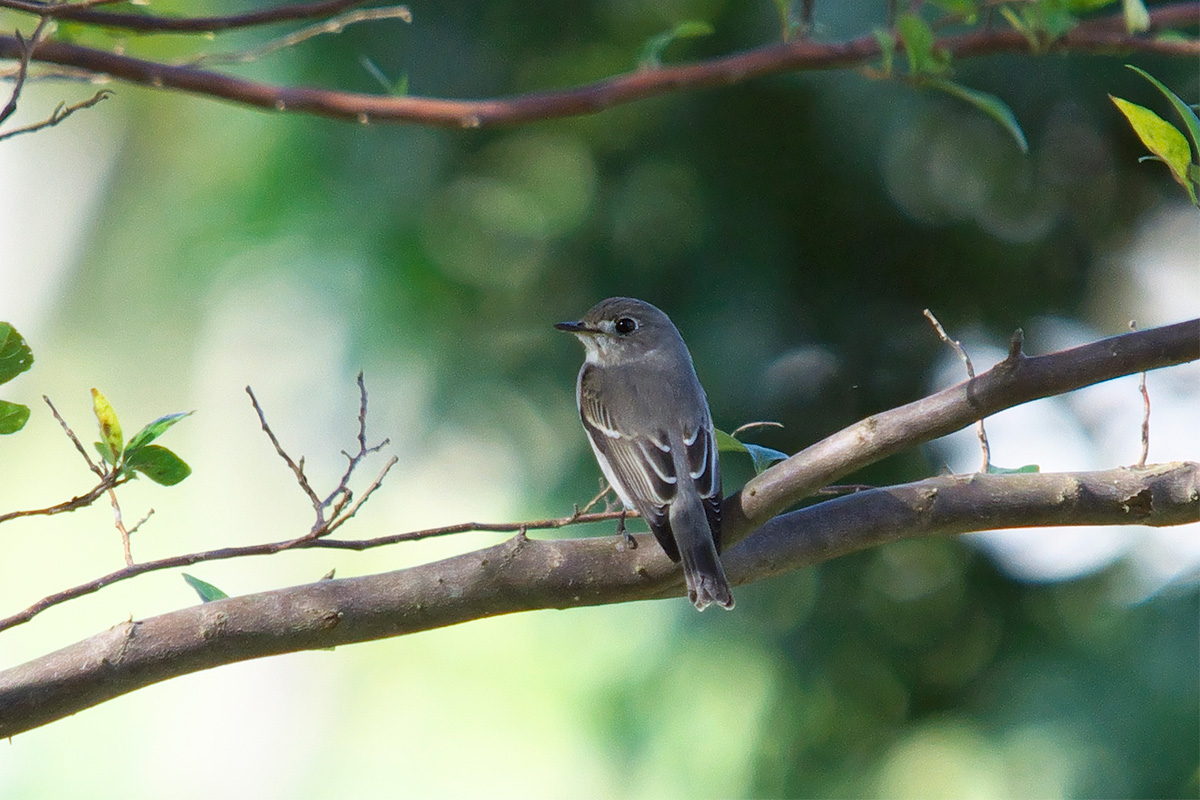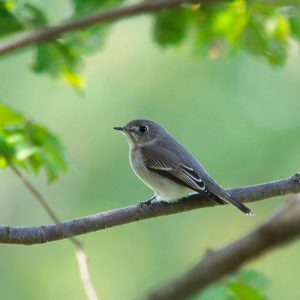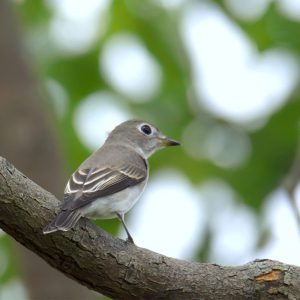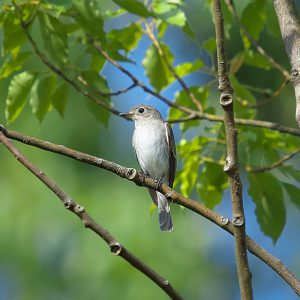むなかたが集まる
電子データベース
電子データベース
コサメビタキ

| 種目 | コサメビタキ (小鮫鶲) | 分類 |
スズメ目 ヒタキ科 サメビタキ属 |
学名 | Muscicapa dauurica | 英名 | Asian Brown Flycatcher |
|---|---|---|---|---|---|---|---|
|
コサメビタキ (小鮫鶲) |
スズメ目 ヒタキ科 サメビタキ属 |
Muscicapa dauurica | Asian Brown Flycatcher |
宗像市でみられる場所・時期
宗像では旅鳥で,春秋の渡りの時期(4月後半から5月,9月から10月)に,市内全域の里山,公園などの林内で観察できる。春に比較して秋の渡り時期の方が観察機会が多い。
特徴
全長13㎝。スズメより小さい。雌雄同色である。
成鳥は頭部から体上面は灰褐色で,翼,尾は暗灰褐色となる。雨覆,風切の羽縁は白色,アイリングは白い。眼先が白っぽくなる傾向がある。腮以下の体下面は淡い灰褐色で,白っぽく見える。嘴は黒褐色で,下嘴は黄褐色となる。サメビタキ,エゾビタキに比較して嘴の幅が広くなっている。
習性
平地から山地の林などに飛来する。繁殖期でも,渡り期でも,サメビタキより明るい林を好む傾向がある。林内の枝に垂直にとまり,飛んでいる昆虫を嘴でフライイングキャッチして食べる。秋の渡り期には木の実も食べる。
囀りは「チッ ヂョッ チチチチョチュチュ」で,「ツィ」などと地鳴きする。
分布
中部地方以北で夏鳥であり,それ以外は旅鳥となる。シベリア東南部,沿海州,カラフト,ネパールなどで繁殖し,インド亜大陸,インドシナ半島,マレー半島,ボルネオ島,フィリピン,スマトラ島,ジャワ島などで越冬する。中国広東省(香港も含む。)でも越冬する。
その他
サメビタキ,コサメビタキ,エゾビタキの区別が必要になる。
 はじめに
はじめに お問い合わせ
お問い合わせ

